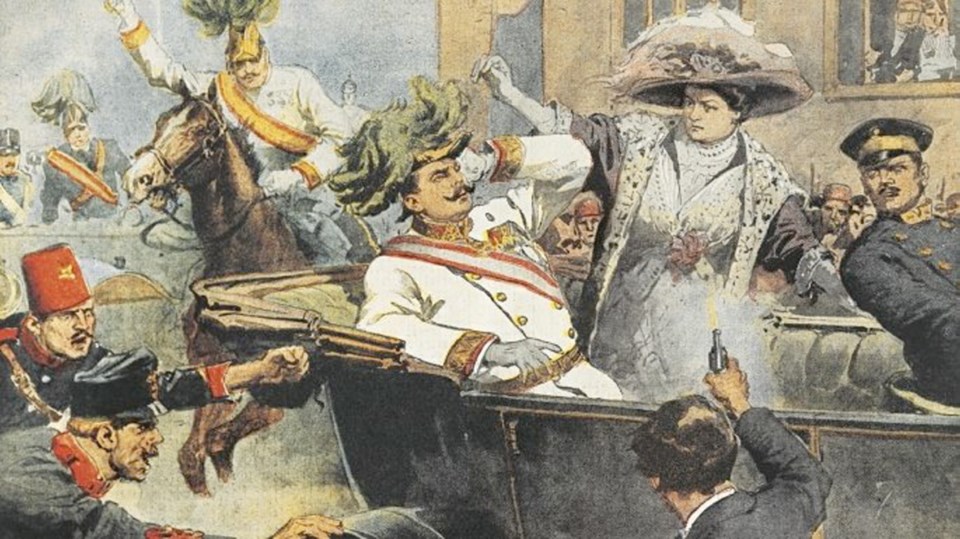This is the second in a series of five columns on the First World War, leading up to the 100th anniversary of the armistice on Nov. 11.
In every sense, this was an unintended war. Not one of the participants foresaw what lay ahead, or would have taken part if they had.
As some historians tell it, the war was caused by the assassination of the Archduke Franz Ferdinand, heir to the Austro-Hungarian empire, and his wife Sophie. The culprit, fatefully, was Serbian.
But this is mere date-stamping. The real origins lie further in the past.
The American historian Barbara Tuchman blamed the conflict on a labyrinth of interlocking treaties that bound the participants to fight, even when it wasn’t in their interest.
There is some truth in that, though treaties are only as good as the willingness of politicians to honour them (consider NAFTA, for example, signed by one U.S. president, reneged on by another). But the real cause of the conflagration was unprecedented human foolishness by the foremost statesmen of the era.
Leading the parade was Germany’s ruler, Kaiser Wilhelm II, as weak-minded as he was headstrong. After provoking a series of international skirmishes that turned into one embarrassment after another, this devotee of blood and iron pitchforked Austria into attacking Serbia.
But Serbia was a client state of Russia, and Czar Nicholas II, though basically a well-intentioned man, had all the foresight of a bag of nails.
It was his decision to back the Serbs that turned what should have been a three-month local conflict into eventual world war. Nicholas and his family were to pay for that decision with their lives, when Vladimir Lenin unleashed a different kind of terror.
It’s difficult to pin the French contribution on just one leader, because so many played a role. But perhaps the prize goes to president Raymond Poincaré.
Before Britain entered the war, her prime minister, Herbert Asquith, asked Poincaré what he could do to help. Realizing that France’s hesitant ally would have to be provoked into fighting, Poincaré replied: “Send me some English soldiers, and I will see to it they are killed.” He got his way.
If anyone could have called a halt to the rapidly escalating crisis (and it’s not clear anyone could have), it was Britain’s foreign secretary, Edward Grey. But Grey was an enigmatic man who rarely revealed his thinking.
Growing blind and devastated by the death of his wife (she was killed, of all things, by falling out of a carriage), he kept his cabinet colleagues, and likewise his foreign counterparts, in the dark. On the brink of war, when decisive action was needed, Grey mumbled and dithered.
Neville Chamberlain later suggested that had Britain done more to make its position clear in 1914, the Great War might have been avoided. That was Grey’s doing.
The fifth horseman of the apocalypse (I know, there were traditionally only four, but it took five to create a mess like this), was America’s president, Woodrow Wilson.
Deeply suspicious of the European countries, he wished a pox on all their houses. As a result, he kept his country on the sidelines until the last moment, thereby prolonging the catastrophe.
Of course, other acts of inexplicable stupidity played their part. Germany attacked France by flanking the French defences to the north. But that meant marching through Belgium, and Britain was committed to assisting in that country’s defence, as the German high command well knew.
This ended any hope that the war could be confined. Four years of unmitigated disaster lay ahead, disaster that need never have happened. Worse than that, as the French commander Ferdinand Foch accurately predicted, the peace that ended the war “is not a peace. It is an armistice for 20 years.”
Next week, I’ll look at the Kaiser’s decision to permit unrestricted U-boat warfare that finally brought America into the war and sealed the fate of Germany, for the time being at least.



